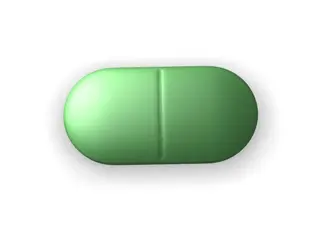Buy Risperidone Online in New Zealand — No Prescription Needed
| Package | Dosage | Price | Price per Dose | |
|---|---|---|---|---|
| Dosage: 2mg | ||||
| 270 pill | 2mg | NZD476.34 | NZD1.76 | |
| 180 pill | 2mg | NZD357.24 | NZD1.98 | |
| 120 pill | 2mg | NZD273.34 | NZD2.27 | |
| 90 pill | 2mg | NZD224.62 | NZD2.52 | |
| 60 pill | 2mg | NZD181.32 | NZD3.00 | |
| 30 pill | 2mg | NZD116.36 | NZD3.92 | |

Risperidone Description
Introduction to Risperidone
Risperidone is a medication primarily used to treat mental health conditions such as schizophrenia, bipolar disorder, and irritability associated with autism. It belongs to the class of drugs known as atypical antipsychotics, which work by balancing certain chemicals in the brain. Many patients have found Risperidone helpful in managing their symptoms, leading to improved daily functioning and quality of life. However, like all medications, it comes with potential side effects and considerations that users should be aware of before starting treatment.
How Risperidone Works
This medication operates by targeting specific neurotransmitters in the brain, particularly dopamine and serotonin. By modulating these chemicals, Risperidone helps reduce hallucinations, delusions, mood swings, and aggressive behaviors. Its mechanism of action makes it effective in stabilizing mood and thought processes, especially in individuals experiencing psychosis or manic episodes. The drug's ability to influence multiple neurotransmitter pathways is why it can be effective but also why it requires careful monitoring by healthcare professionals.
Benefits and Effectiveness
Many users report a significant reduction in symptoms after beginning Risperidone therapy. Patients with schizophrenia often experience fewer hallucinations and less disorganized thinking. Those with bipolar disorder may find their manic episodes shortened or less intense. Parents and caregivers note improvements in children with autism, especially concerning irritability and aggression. When taken as prescribed, Risperidone can facilitate better social interactions and help patients maintain stability in their lives. Though individual responses vary, the overall effectiveness of this medication has been well-documented in clinical research.
Potential Side Effects
Like any medication, Risperidone can cause side effects. Common ones include weight gain, drowsiness, dizziness, and fatigue. Some users may experience an increase in saliva production or exhibit tremors. More serious but less common effects include metabolic changes such as increased blood sugar and cholesterol levels, which can elevate the risk for diabetes and cardiovascular issues. In some cases, patients may experience movement disorders like tremors or stiffness, known as extrapyramidal symptoms. Due to these potential risks, regular medical checkups are essential to monitor health during treatment.
Precautions and Considerations
Before starting Risperidone, it is important to inform your healthcare provider about any existing health conditions, especially heart problems, liver or kidney issues, or a history of metabolic disorders. Pregnant or breastfeeding women should discuss the risks and benefits with their doctor since the medication can pass into the breast milk or affect fetal development. Elderly patients, particularly those with dementia-related psychosis, may have an increased risk of death when using Risperidone. Proper dosing and careful management help minimize side effects and ensure the medication's benefits outweigh the risks.
Summary of User Experiences
Many individuals have found Risperidone to be a valuable part of their treatment plan. Patients often highlight improved moods, reduced hallucinations, and better overall mental stability. Some mention initial side effects like drowsiness or slight weight gain but report that these often diminish over time or can be managed with lifestyle adjustments. It is important for users to communicate regularly with healthcare providers to adjust doses as needed and address any concerns. Overall, the medication has a positive reputation for helping patients regain control over their mental health, provided it is used responsibly and monitored carefully.

